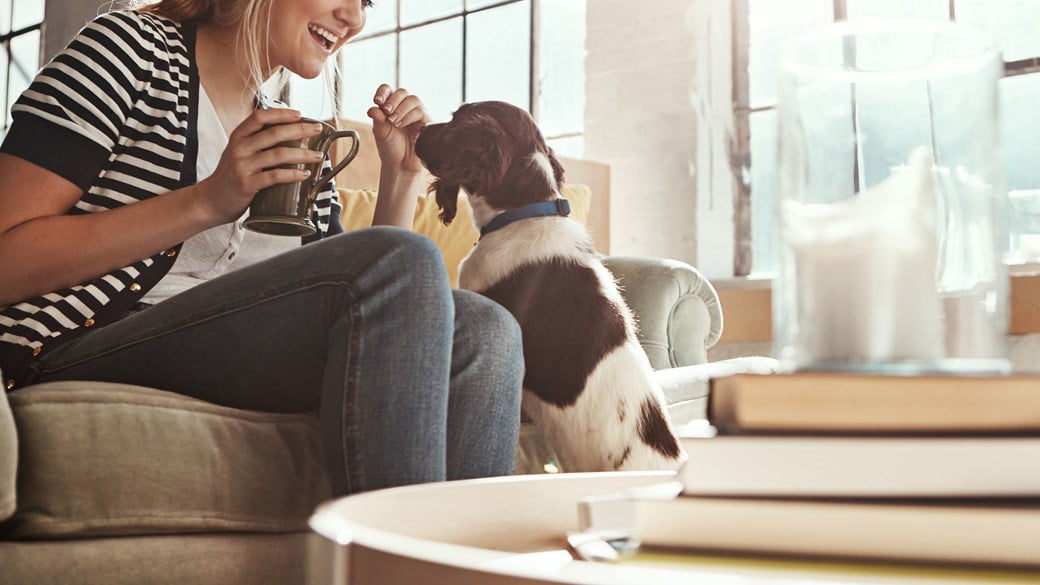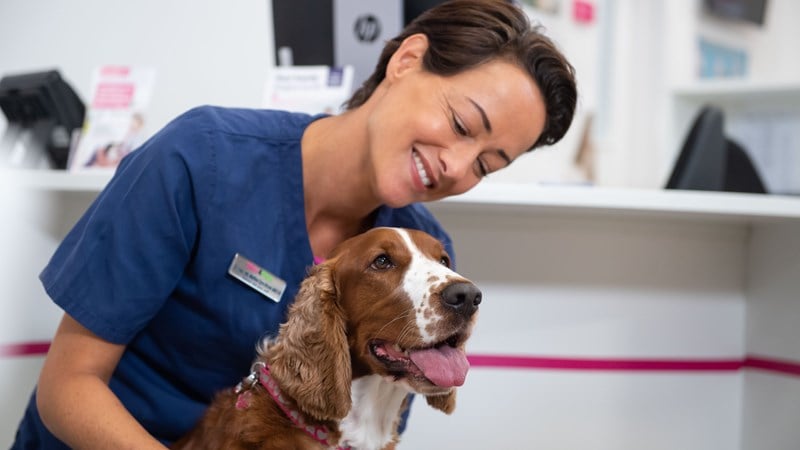
Spotting and Handling Behaviour Changes In Dogs
The last few months have brought a great deal of change. So, how might have lockdown restrictions affected our dogs?
With change has come a wave of new habits, feelings and often, anxiety. But can the same be said for our pets? How can you spot signs or boredom in your pet? Would you know if your pet was feeling anxious? And how can you help them while we all navigate these unusual circumstances?
Read about how to get your dog used to face masks and coverings here.
Signs of boredom in dogs
Some dogs like to take things apart – that’s quite normal – but dogs who are feeling frustrated and bored might begin to turn their attention to their own bed, or to your furniture or your children’s toys, remote control handsets etc.
This can take many forms! Pets are great at training us and they soon realise that we’ll reward certain behaviour.
Dogs might vocalise to grab your attention: You might think that telling them sharply to be quiet should stop them from barking or whining. In fact, any attention counts when you’re a bored dog so, whether you’re reaching out to soothe them for whining or telling them for the fifth time to quieten down, it’s likely to encourage your dog to keep going!
Just like children, bored pets can sometimes get a bit over-the-top when playing, resulting in potential for someone to get scratched or nipped.
While a momentary case of the zoomies (where a dog whizzes around an open space or garden at top speed, often making a repetitive play sound to themselves) is quite normal and can just be an expression of glee, bored dogs may start to do this more frequently and repetitively.
How does social isolation affect our dogs?
Some dogs can become frustrated when they aren’t having regular interactions with other dogs.
This can lead to them displaying some new behaviour or it can exacerbate other behaviour that’s previously been kept to low levels.
The effects of social isolation on our dogs
Dogs who are confined to their home or garden may start to become more territorial about their space.
You might see this happening if your dog starts to patrol garden boundaries and bark at passers-by, or you might notice that they’re spending more time watching the street through a window or door and getting excited and noisy when they see people.
Sometimes, going without regular social interactions with other dogs can lead to them becoming excited when they encounter dogs on their walks.
They might bark or lunge towards other dogs while on their lead, and if they’re off-lead they may rush at other dogs, bark at or slam into them, or try to mount them – which won’t make them very popular!
If your dog was already of a shy or anxious disposition before social distancing measures came into place, you might find that their confidence with other people or dogs takes a step back now that you’re unable to have regular practice at calm and positive interactions.
How you can help
Take a walk!
Most dogs need at least one walk every day, and there’s a simple way for them to have more: Each family member from your household can take the dog with them for exercise – as long as they are confident and old enough to be safe when in charge, and provided they adhere to the social distancing measures in place.
Dogs who can’t be let off the lead to exercise freely will benefit from frequent lead walks so that they can explore with their nose – they all love to sniff and find out who’s around!
Practice some training in the home or garden
You don’t need much room to be able to achieve surprisingly good results and have fun at the same time.
You can practice some basic obedience commands, or you could branch out into trick training.
Give them some space
Older or less interactive dogs might also welcome a bit of quiet time.
Remember how much exercise and attention these guys are used to and remind children that it’s best to let dogs have their space if they take themselves off to their bed or quiet place. They’ll let you know when they’re ready to play again!
Health Plans to keep your dog healthy
At Vets4Pets we offer a range of Health Plans that make essential routine treatments more affordable. You'll save money on things like annual vaccinations, flea and worm treatment and routine health check-ups.

Dog Advice
Read more of our expert dog advice to keep your dog happy and healthy.
